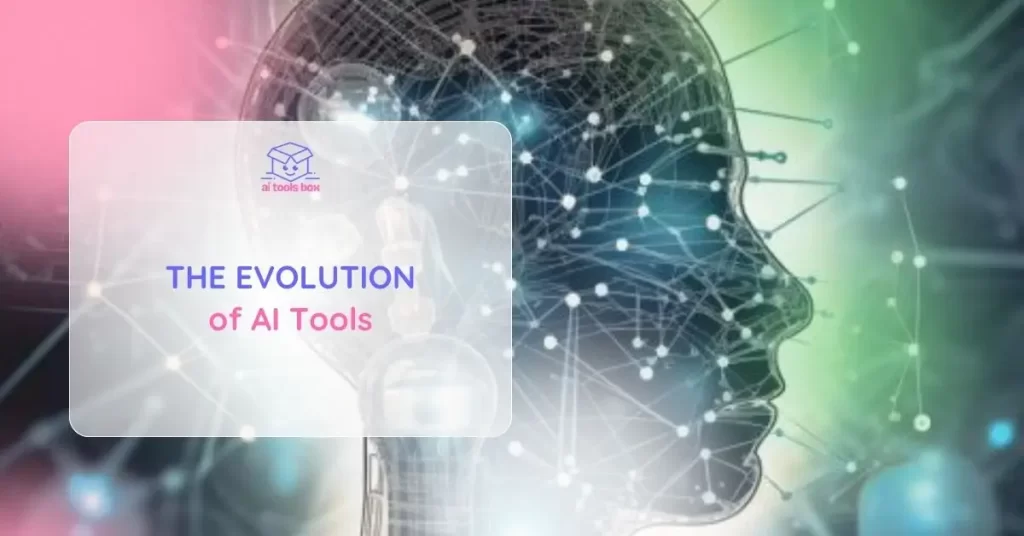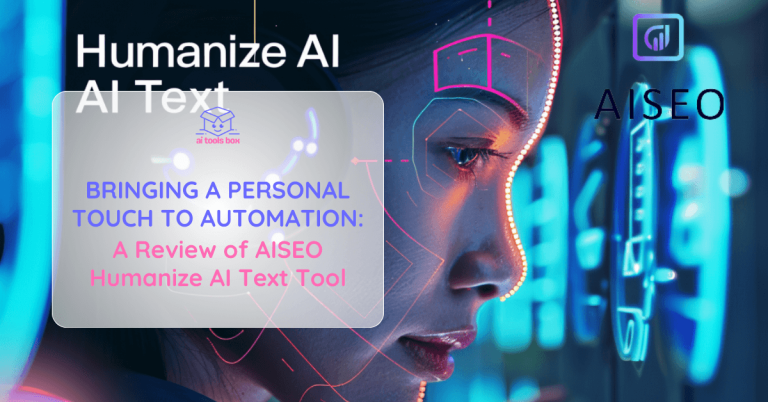In a world where the line between science fiction and reality increasingly blurs, the evolution of artificial intelligence (AI) stands as a testament to human ingenuity and foresight. From its conceptual genesis in the realms of science fiction to its current status as a cornerstone of technological advancement, AI has undergone a transformation that is nothing short of remarkable. This journey of AI, from theoretical models to sophisticated AI tools reshaping our everyday lives, mirrors the human quest for knowledge and mastery over the complexities of nature and information.
The story of AI is one of ambition, breakthroughs, challenges, and endless possibilities. It's a narrative that intertwines technological innovation with philosophical ponderings, ethical considerations, and futuristic visions. In this article, “From Science Fiction to Fact: The Remarkable Evolution of AI Tools,” we delve into the historical milestones that have shaped AI, its integration into the fabric of modern society, the challenges encountered along the way, and a glimpse into what the future might hold for this fascinating field.
Join us on this enlightening journey as we explore how AI has evolved from a mere concept in science fiction to a pivotal component in the tapestry of contemporary technology and beyond.
The Early Years of AI: Foundations and Theoretical Beginnings
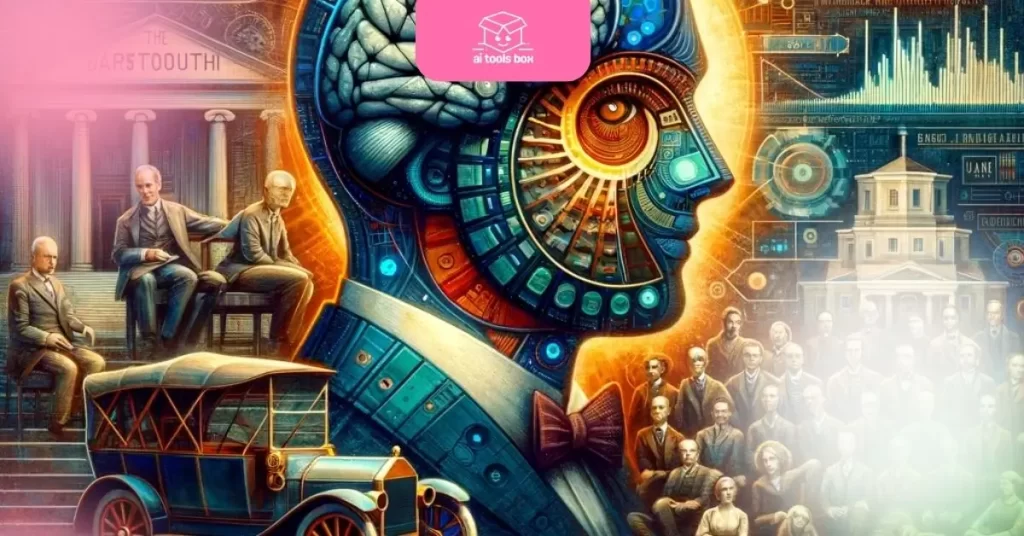
The genesis of artificial intelligence (AI) is a story of human curiosity and visionary thinking, tracing back to a time when the concept of ‘thinking machines' was purely speculative. The groundwork for what would eventually become a ground-breaking field of technology was established during the early years of artificial intelligence through innovative theories and experiments.
- Pioneering Theories and Models: The inception of AI as a scientific discipline can be traced back to the mid-20th century. Pioneers like Alan Turing, widely regarded as the father of theoretical computer science and artificial intelligence, began exploring the potential of machines to simulate human thinking. Turing's famous question, “Can machines think?” posed in 1950, set the stage for the AI journey.
- The Dartmouth Conference: The Birth of AI In 1956, a landmark event known as the Dartmouth Conference brought together eminent figures in the field, including John McCarthy, Marvin Minsky, Nathaniel Rochester, and Claude Shannon. It was here that the term ‘Artificial Intelligence' was coined, marking the official emergence of AI as an independent field of study.
- Early Achievements and Limitations: The 1950s and 1960s witnessed the creation of the first AI programs. These programs, like the Logic Theorist and ELIZA, demonstrated basic problem-solving and interaction capabilities. However, these early achievements also highlighted the limitations of AI at the time, particularly in terms of processing power and the complexity of tasks they could handle.
- Theoretical Frameworks and Conceptual Advances: Alongside these practical developments, the early years of AI were characterized by significant theoretical work. This period saw the development of key AI concepts such as machine learning, neural networks, and the exploration of computational intelligence, which laid the groundwork for future advancements.
- The AI Winter: Despite early enthusiasm, the field of AI experienced its first major setback in the 1970s and 1980s, a period known as the ‘AI Winter.' This was a time of reduced funding and waning interest in AI research, largely due to inflated expectations and the subsequent realization that AI's goals were more challenging to achieve than initially thought.
This historical backdrop sets the stage for understanding the complexity and the dynamic nature of AI's evolution. The early years of AI were filled with both optimism and challenges, laying a foundational framework that would eventually lead to the advanced AI technologies we see today.
Milestone Achievements in AI Development
A number of significant turning points in the development of artificial intelligence (AI) have opened the door to the cutting-edge technologies of today. These achievements not only demonstrate the rapid progress in the field but also highlight the ingenuity and perseverance of the scientific community.
- Chess and Strategy Games: One of the early indicators of AI's potential was its proficiency in games. In 1997, the world witnessed a landmark moment when IBM's Deep Blue defeated the reigning world chess champion, Garry Kasparov. This event symbolized a major leap in AI's capabilities, showcasing advanced computational power and strategic thinking.
- Natural Language Processing (NLP) and Machine Translation: The advent of sophisticated NLP algorithms marked another significant achievement in AI development. Google's breakthrough with machine translation in the late 2000s demonstrated the ability of AI to understand and translate human languages with remarkable accuracy, revolutionizing communication across language barriers.
- Autonomous Vehicles: The ongoing development of autonomous vehicles is a testament to AI's transformative impact. Companies like Tesla and Waymo have made significant strides in creating vehicles that can navigate complex environments without human intervention, signifying a future of increased safety and efficiency in transportation.
- AI in Healthcare: AI has made substantial contributions to healthcare, from predictive analytics in patient care to the development of drug discovery processes. Tools like IBM's Watson have been instrumental in providing personalized treatment recommendations based on vast amounts of medical data.
- AI-Driven Personal Assistants: The emergence of AI-driven personal assistants like Amazon's Alexa and Apple's Siri has changed the way we interact with technology. These assistants, capable of understanding and responding to voice commands, have become ubiquitous in homes worldwide, simplifying tasks and providing instant information.
Each of these milestones not only represents a significant technological breakthrough but also illustrates the versatile applications of AI across various industries. They serve as a testament to AI's potential to continue transforming our world in ways we have yet to fully comprehend.
AI Integration in Everyday Life

The integration of artificial intelligence (AI) into everyday life has been one of the most significant transformations of the 21st century. AI's influence spans a vast array of industries and personal experiences, making it a ubiquitous presence in our daily activities.
- Smart Home Devices: AI has revolutionized the way we interact with our homes. Smart home devices like thermostats, security systems, and lighting controlled by AI not only offer convenience but also enhance energy efficiency and safety.
- E-Commerce and Personalization: Artificial intelligence has revolutionized the e-commerce sector with personalized shopping. AI algorithms analyze customer data to recommend products, predict purchasing behavior, and provide tailored search results, fundamentally changing the way we shop online.
- Content Streaming Services: Streaming services like Netflix and Spotify use AI to personalize recommendations. By analyzing viewing and listening habits, AI curates content that aligns with individual preferences, enhancing the user experience and engagement.
- Customer Service Automation: AI has significantly impacted customer service with chatbots and virtual assistants. These AI-driven tools can handle inquiries and provide assistance 24/7, improving efficiency and customer satisfaction.
- Health and Fitness Apps: The health and fitness sector has also embraced AI. From wearable fitness trackers that monitor health metrics to apps that provide customized workout and nutrition plans, AI is playing a pivotal role in personal health management.
The integration of AI in these areas demonstrates its versatility and potential to further infiltrate other aspects of our lives. AI's ability to process data, learn from interactions, and predict preferences is not just a technological achievement but a paradigm shift in how we live, work, and entertain ourselves.
Challenges and Ethical Considerations in AI Evolution
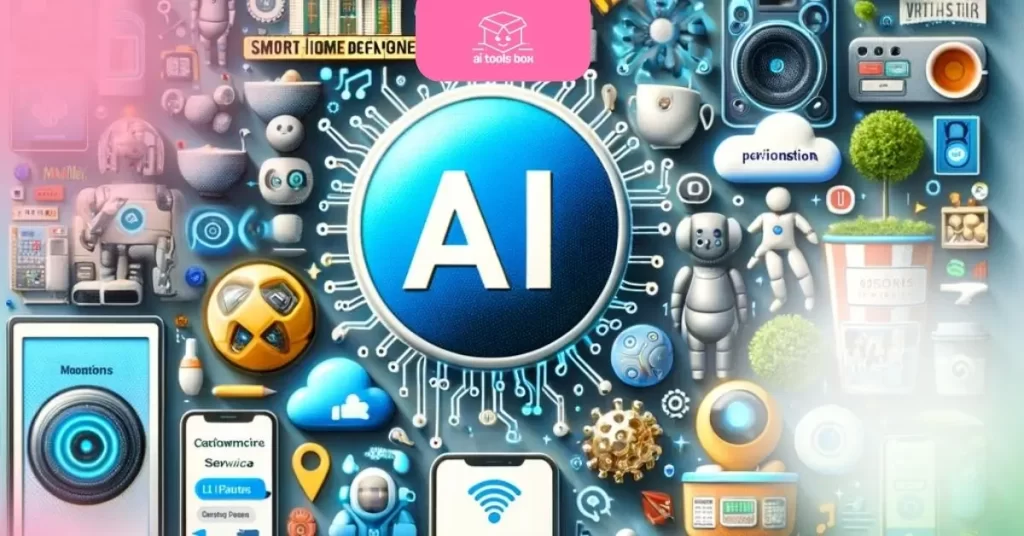
As artificial intelligence (AI) continues to advance, it brings not only technological breakthroughs but also significant challenges and ethical considerations. Understanding these is crucial for the responsible development and implementation of AI.
- Data Privacy and Security: One of the primary concerns in AI is data privacy and security. AI systems often require vast amounts of data, raising questions about the security of personal information and the potential for data breaches.
- Bias and Discrimination: AI algorithms can inadvertently perpetuate and amplify biases present in the training data. This can lead to discrimination in areas like hiring practices, law enforcement, and loan approvals, making the need for unbiased AI a critical goal.
- Job Displacement: The automation potential of AI has sparked fears of widespread job displacement. As AI takes over more routine tasks, the concern is that it could lead to unemployment in certain sectors, necessitating a rethinking of job roles and the labor market.
- AI Accountability and Decision Making: Determining accountability for decisions made by AI systems, especially in critical areas like healthcare and criminal justice, is a complex challenge. There is an ongoing debate about how to ensure transparent and responsible AI decision-making processes.
- Ethical Use of AI: The ethical use of AI extends to its applications in surveillance, the military, and other sensitive areas. Ensuring that AI is used in a manner that aligns with societal values and ethics is a significant ongoing discussion among policymakers, technologists, and the public.
Addressing these challenges is essential for the sustainable and ethical advancement of AI. It requires a collaborative effort among developers, regulators, and users to ensure that AI benefits society while minimizing potential harm.
The Future of AI: Predictions and Emerging Trends
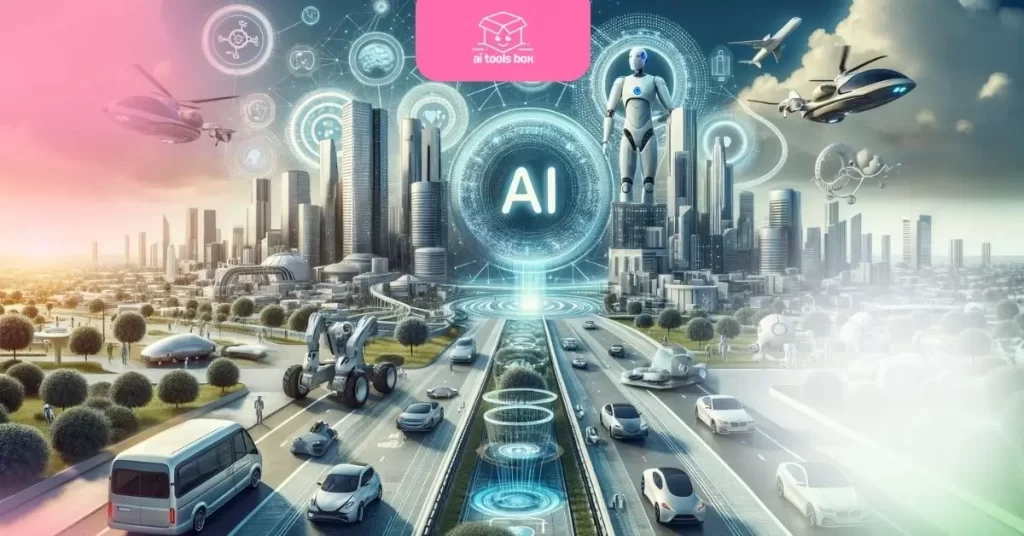
As we look towards the future, the realm of artificial intelligence (AI) is ripe with possibilities and predictions. Emerging trends suggest a path that is both innovative and transformative, continuing to reshape our world in profound ways.
- Advancements in Machine Learning and Deep Learning: Future AI is expected to see significant advancements in machine learning and deep learning, leading to more sophisticated and efficient AI systems. These advancements will enhance AI's ability to learn from data, make predictions, and improve decision-making processes across various sectors.
- AI in Healthcare: Towards Precision Medicine AI is set to revolutionize healthcare by advancing precision medicine. It will enable more personalized healthcare treatments by analyzing patient data, genetic information, and environmental factors, leading to more effective and targeted therapies.
- Autonomous Systems and Robotics: The future will likely witness an increased presence of autonomous systems and robotics in everyday life. From self-driving cars to robotic assistants, these technologies will offer new levels of convenience and efficiency.
- Ethical AI and Regulation: As AI becomes more embedded in society, the focus on ethical AI and regulation will intensify. This will involve developing frameworks to ensure AI is used responsibly, addressing issues like privacy, bias, and transparency.
- AI and the Human Experience: AI is poised to further blend with the human experience, potentially leading to advancements in fields like augmented reality, virtual reality, and brain-computer interfaces. This integration will redefine the boundaries between humans and machines, offering new ways to interact with the world around us.
In conclusion, the future of AI holds immense potential, but it also presents challenges that need to be navigated carefully. Balancing innovation with ethical considerations will be key to harnessing the full potential of AI in a way that benefits humanity as a whole.
